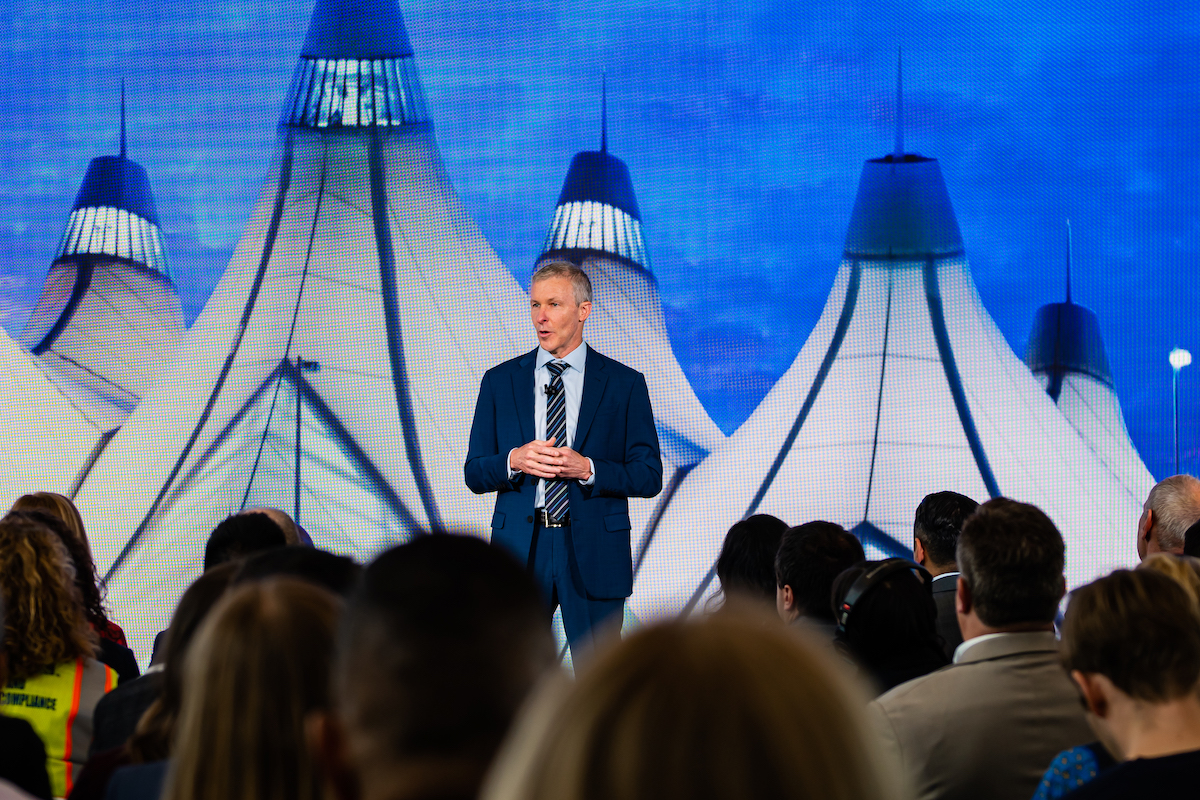Skift Take
The recovery in business travel has plateaued in the U.S.
United Airlines CEO Scott Kirby Monday described the U.S. economy as in a “business recession,” even as consumers continue to spend heavily on travel.
“In the U.S., we’re in a business recession, and consumer is just fine — consumer is strong,” he said on the sidelines of the the annual meeting of global aviation trade group the International Air Transport Association (IATA) in Istanbul.
That weakness, whether recession or not, has translated to a slower corporate travel recovery than many had anticipated, even as leisure travel surged back last year. Business travel demand at United has “plateaued,” Chief Commercial Officer Andrew Nocella said Monday, at levels better than over the winter but not fully recovered. He declined to put a percentage on how much road warriors were back except to say managed corporates remain down the most, while the recovery is most advanced with small- and medium-sized businesses.
American Airlines and Delta Air Lines are seeing similar trends in the recovery of business travel. Managed corporate revenue is at 75-80 percent of 2019 levels at the former, and 85 percent at the latter. Delta executives in April described the recovery as “stable.”
But the state of corporate travel is a significant concern for airlines. Road warriors drive an outsize portion of revenues, propping up business during periods of slower leisure travel. That may not matter this summer when travel demand is robust and fares are up thanks to limits on flights caused by, among other things, a U.S. air traffic controller shortage. But the situation could become an issue for airlines when leisure travel slows after Labor Day.
Changes in the seasonality of business travel hit United in the first quarter when it lost $43 million and posted a negative 0.4 percent operating margin. Kirby in April described it as a “clear change” in travel patterns that the carrier had not fully anticipated.
“We remain optimistic about the whole remainder of the year,” Nocella said when asked about the demand outlook after the summer.
Cloudy Economic Outlook
A possible business recession in the U.S. comes amid a mixed economic picture. The unemployment rate was just 3.7 percent in May. However, many tech companies continue to layoff staff. Amazon recently announced 9,000 more layoffs after already reducing its workforce by 18,000 people. Facebook parent Meta has laid off more than 10,000 since the beginning of the year, and Google parent Alphabet reduced its headcount by 12,000 earlier this year.
The tech layoffs come at a shaky time for regional banks. Silicon Valley Bank and Signature Bank collapsed in March, and First Republic Bank was sold to JPMorgan Chase in May. Weakness in the commercial property market, which is directly affected by a much slower-than-forecast return to office by many businesses, has raised concerns of additional issues among U.S. regional banks.
Kirby said in April that United saw a brief drop in corporate demand following the collapse of Silicon Valley and Signature banks, but that it had recovered.
Travel, by and large, has remained immune to this uncertainty. In addition to airlines reporting strong demand, Hilton and Marriott International executives also see continued strength through the end of the year.
“If we’re in the middle of a recession, this is the best recession the airline industry has ever seen,” Nocella said.
The Daily Newsletter
Our daily coverage of the global travel industry. Written by editors and analysts from across Skift’s brands.
Have a confidential tip for Skift? Get in touch
Tags: airlines, business travel, coronavirus recovery, united airlines
Photo credit: United CEO Scott Kirby speaking in Denver in May. United Airlines
